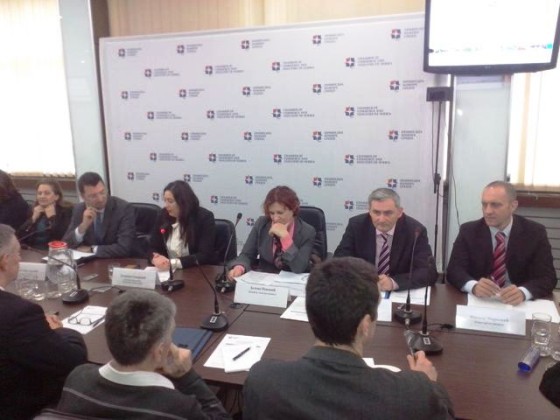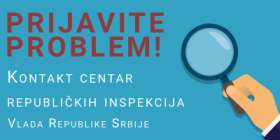Legislative News
In the Chamber of Commerce and Industry of Serbia was held a conference on the theme "CHAPTER 1 - WHAT WE NEGOTIATE"
Chamber of Commerce and Industry of Serbia organized a conference on the activities and results of the Negotiating Group 1 - free movement of goods in order to inform entrepreneurs about the negotiation process
At the beginning of the conference, Mr. Srdjan Majstorovic, Deputy Director of the European Integration Office, addressed the audience and said that the first part of the accession negotiations with the EU, ie. meetings of bilateral screening slowly but surely coming to an end. When we talk about Chapter 1 - Free movement of goods, it is one of the most comprehensive chapter that, despite the influence on the economy and trade, has a major impact on other areas - energy, transport, security policy. Majstorovic explained that everything on the EU market is, in some way, covered with a topics from this Chapter. He said that, having in mind the export orientation of Serbia towards the EU, "the economy is already living the life of the EU." Thanks to the Stabilisation and Association Agreement, that removes barriers to trade, export-import ratio in trade with the EU increased from 40% to 70%. He said that there is no other option for Serbia but to set standards for developed and high-yield markets such as European, otherwise the results are cheap and unsafe products that can not be placed anywhere.

Jelena Popovic, Assistant Minister of Economy and President of the Negotiating Group 1, said that the negotiation process in this chapter, most relating to the economy and it is important to allow the Serbian economy becomes competitive and that Serbian products "get passport "in the European market. The degree of harmonization of regulations of the Republic of Serbia with the EU acquis in the area of free movement of goods was presented in Brussels. Representatives of the European Commission pointed out that Chapter 1 is the most important and the most demanding in legislative terms, because 80% of the entire European legislation belongs to Chapter 1.
For companies that introduce standards implies that they have certain initial investment, but their application has a long-term influence on reducing operating costs, achieving higher revenues, competitiveness and positive effect on economic efficiency in general (economic benefit from the application of standards is up to 15% higher), which has been confirmed in studies that are conducted by international and European standardization organizations.
Miodrag Dugandzija, Deputy President of the Negotiating Group 1, informed the participants about the importance of planning the so-called non-harmonised areas, ie. the manner of prescribing of requirements for group of products that are not covered by harmonized EU legislation (around 30% of the products on the market). He pointed out that, from the experience of Montenegro and Croatia, we can expect that the European Commission will require the adoption of a special action plan for harmonisation with the Treaty on the Functioning of the EU that will define, for each regulation from non-harmonised area, method and deadlines for changes in order to eliminate any barriers to trade. He stressed that, for this purpose, repeatedly over the 400 technical regulations in the past few years were abolished .
Nikola Mirkovic, Secretary of the Negotiating Group 1, presented the legal framework and implementation capacity of conformity assessment with the prescribed requirements, emphasizing that about 70% of European technical directives have already been transposed into the legal system of the Republic of Serbia.
The conference was attended by representatives of other ministries who presented the degree of harmonization with EU regulations in the areas of fertilizers, pressure equipment, energy efficiency and eco-design, construction products, and Vida Zivkovic, Director of Directorate of Measures and Precious Metals, she was talking about the metrology system in Serbia and implementation of regulations relating to the measurement instruments.










